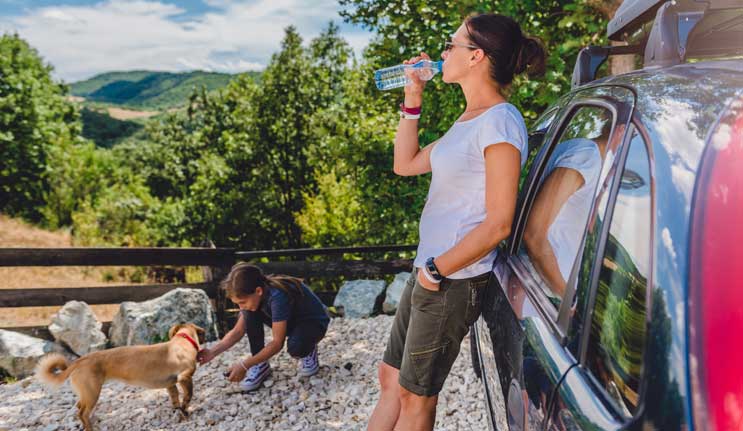Are you planning on going on a road trip? It is no secret that long distance driving can be taxing and troublesome. Many people get tired, bored and distracted during long drives. Drivers are often victims of “highway hypnosis,” a condition where one drives in a daze. Occurring most often when fatigue is present, “highway hypnosis” results in the slowing down of brain activity.
As many as 60% of drivers have reported that they drive while drowsy. This dramatically increases the risk for completely preventable accidents and injuries. As a matter of fact, Orange County personal injury lawyers, DiMarco Araujo Montevideo report that car accidents are one of the leading causes of death for people 1 to 44 years old. Don’t let this be you. Follow these long-distance driving tips to avoid getting sleepy behind the wheel.
1: Get 7 Hours of Sleep
It’s not rocket science. Avoid getting tired on the road by getting an adequate amount of sleep the week before your trip. You may think that getting 7 hours of sleep the night before your trip is enough to keep you awake the next day, but that isn’t true. If you are getting inadequate sleep the entire week before you leave, the odds are pretty high that your body is still recovering from not catching enough Z’s. Remind yourself to go to bed early the week before your trip by setting reminders and alarms on your phone and laptop.
2: Grab Some Healthy Snacks
Help yourself stay awake and alert while driving by munching on some healthy snacks. Avoid snacks that are greasy or heavy, like chips and dip, as they will make you feel sluggish. Try to buy snacks that are handheld and easy to eat so that you won’t have to worry about spilling or making a mess. Some of the snacks I recommend are pre-cut apple slices, bananas, nuts, mozzarella sticks and crackers. You are also more likely to avoid buying food from fast-food joints if you are snacking throughout the day. A word of caution. Eating while driving is a form of distracted driving. Some states have laws that make it illegal to consume food or drinks behind the wheel. The best approach is simply to find a safe place to park your vehicle and then enjoy a snack and beverage.
3: Drink Water
I know what you’re thinking. Drinking more water means more bathroom breaks right? Yes, it does. However, the pros to drinking more water outweigh the costs. It’s no secret that drinking water is essential for our human body to function properly. Our bodies thrive on water. Drinking water will help you stay awake while nourishing your organs. Dehydration can lead to a variety of ailments including headaches, fatigue, kidney stones and even blood clots in the legs (especially if you’ve been sitting for a long period of time). Restroom breaks will allow you to stretch your legs which is guaranteed to improve blood flow and increase your attentiveness.
4: Find Interesting Places to Stop
One of the best parts about road trips is exploring places that you normally wouldn’t get the chance to see. Explore your route and plan a few rest stops. These breaks in your journey will give you the opportunity to see something new, work in some exercise and stimulate your mind. Find museums that you could stop at for a couple of hours. Research a restaurant that would be fun to try. Locate a historical monument that would make for a great selfie. It is recommended that you take a break from driving every two to three hours. Plan accordingly!
5: Download Podcasts
Combat fatigue by listening to podcasts! Podcasts are a great way to pass the time when you’re on the road. Listening to podcasts will often keep your mind active which in turn will keep you awake longer. Podcasts are a great way to learn new things and will keep your brain active without distracting you too much. You can find free podcasts on iTunes, Spotify and TuneIn, to name a few. Download a few before hitting the road so they are ready to play when you are.
Outside of following these tips, remember to listen to yourself when you’re on the road. If you are starting to get restless and can feel yourself dozing off, find a rest stop. It doesn’t matter if you get to your destination a bit later than planned, your life is more important. Have a safe drive and get to where you need to be in one piece!
About the Author
 Amanda Lin is a content writer from Daly City, CA. She loves to write about safety, music, family, self-growth, and more. She is currently working with Safer-America to help shine a light on safety issues that affect consumers on a daily basis.
Amanda Lin is a content writer from Daly City, CA. She loves to write about safety, music, family, self-growth, and more. She is currently working with Safer-America to help shine a light on safety issues that affect consumers on a daily basis.
Stay safe on the road with these training courses on driving safety:








